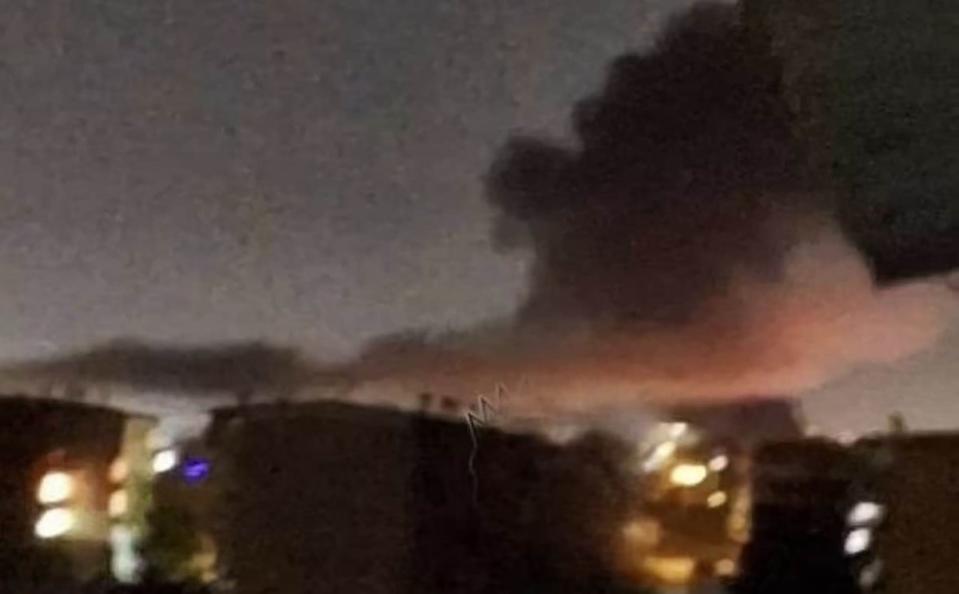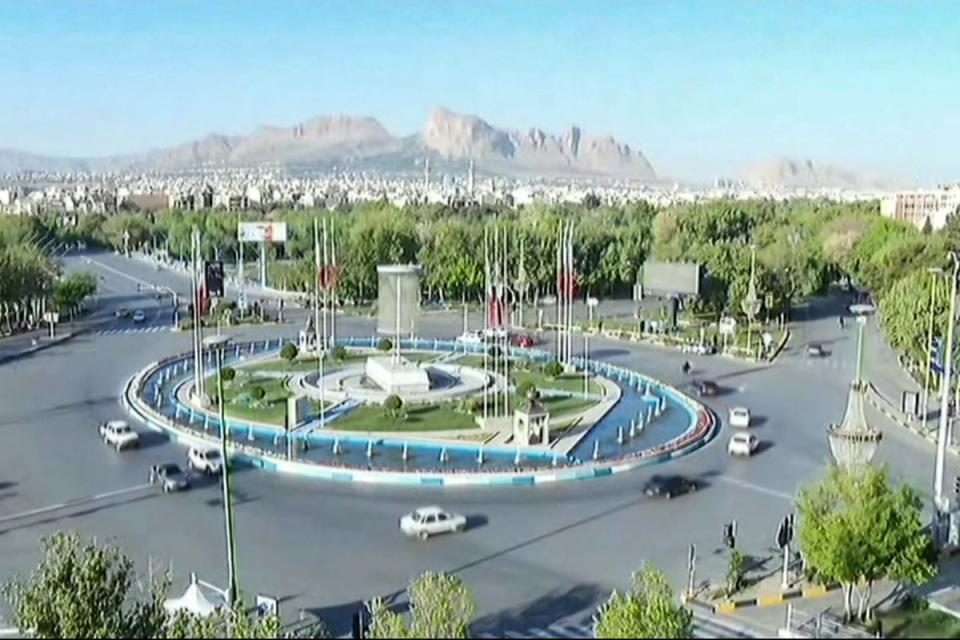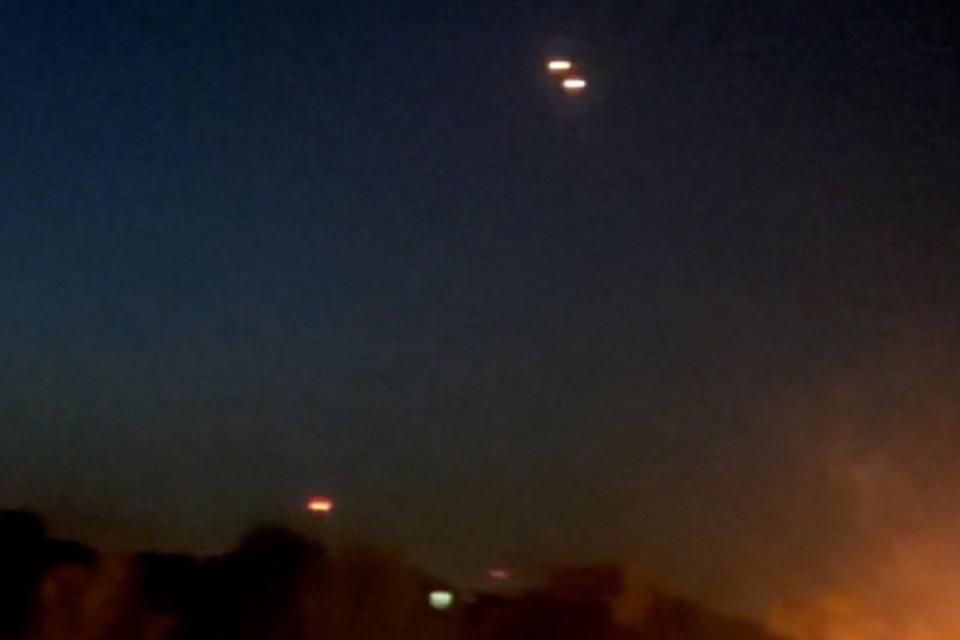Israel ‘carries out strikes on Iran’ as Western allies urge restraint
The bitter confrontation between Israel and Iran has reached new, dangerous levels after Benjamin Netanyahu’s government is believed to have carried out strikes inside the Islamic Republic following the mass drone and missile assault last Saturday.
The attacks in Isfahan are said to have targeted a military airbase next to one of Iran’s most important nuclear plants, adding to fears of a conflict spiralling out of control as Tehran threatened it will target Israeli nuclear facilities if any Iranian ones are hit.
The Iranian government, however, tried to play down the attack, saying no damage had been done and that it had no plans, for the time being, to retaliate.
The US administration told a G7 meeting it had been given a “last minute” notice by Israel before the strike, according to the Italian foreign minister Antonio Tejani. However, reports in the US spoke of a warning given to Washington on Thursday that an attack would take place within 48 hours.
There was also confusion over how the attack was carried out. The Israeli government has not commented and the US administration, which confirmed the Israeli attack, did not give details of the weapons used.
The US TV network NBC said that American officials had stated that an Israeli missile was fired into Iran.
The Iranian government, however, claimed that drones were launched inside the country from two separate locations.

As well as Isfahan, there was an attempted air raid on the city of Tabriz. Tehran said the drones, between three and five in number, were shot down.
Israel has long carried out a shadow war inside Iran, mainly targeted at its nuclear programme, through assassination of scientists, blasts and cyberattacks on nuclear installations, and breaking into nuclear archives to seize classified material.
Speaking at the G7 meeting in the Italian island of Capri, US secretary of state Antony Blinken stressed that there was no American involvement, but added nothing more.
Joe Biden, as well as other Western states, have repeatedly urged Israel not to escalate the conflict following the launching of more than 350 missiles and drones by Iran.
The UK, France and Jodan all played a significant part in thwarting the Iranian assault by shooting down a vast number of the weapons before they reached Israeli airspace.
The seemingly limited nature of the Israeli attack will lead to hope that another round of strikes and counterstrike will not follow. But there were warnings that miscalculations could lead to a conflagration.
The UN secretary general, Antonio Guterres, said it was “high time to stop the dangerous cycle of retaliation in the Middle East, any further development that could lead to devastating consequences for the entire region and beyond”.
The G7, which includes the UK, US, France, Italy, Germany, Japan and Canada, urged an “absolute de-escalation” in the Middle East.
“We are monitoring the situation closely. We will address the situation with the foreign ministers at the G7 session this morning in Italy,” the Canadian foreign minister, Melanie Joly, tweeted.

In all, the attack appeared small and calculated following a week of speculation over how Israel would respond to Iran’s attack on Saturday. That failed attack on Israeli soil was in response to an assault on an Iranian consulate in Syria that killed seven officers, including two generals, the week before.
Sources told Reuters that the Israeli prime minister had initially approved plans for an immediate strike back on Monday, before holding back at the last minute following worldwide pressure, including from the US president.
Israel’s options appeared to range from targeting strategic Iranian facilities, including nuclear sites or Revolutionary Guards bases, to covert operations such as targeted assassinations and cyberattacks.
But by reportedly targeting an airbase with a measured strike, Mr Netanyahu proved he could strike within Iranian territory while potentially having the last shot, which many will hope will be small enough for Iran to not respond militarily.
As a result of the strike, Dubai-based carriers Emirates and FlyDubai diverted planes around western Iran while the country’s authorities grounded commercial flights in Tehran and across its western and central regions.
The US embassy in Israel imposed travel restrictions on its employees and their families, while British security firm Ambrey has issued a warning to merchant vessels in the Arabian Gulf and Western Indian Ocean.

Meanwhile, police in Paris arrested a man at the Iranian consulate after responding to a witness report of a suspicious man possibly carrying a grenade and explosives vest. It was later confirmed the man was not carrying any weapons.
Inside the consulate, the man “allegedly made threats of violent acts” but then left the building alone, the prosecutor’s office said in a statement.
The incident came at a time of heightened tensions, with Paris on high security alert as it gears up to host the Olympics in three months.


